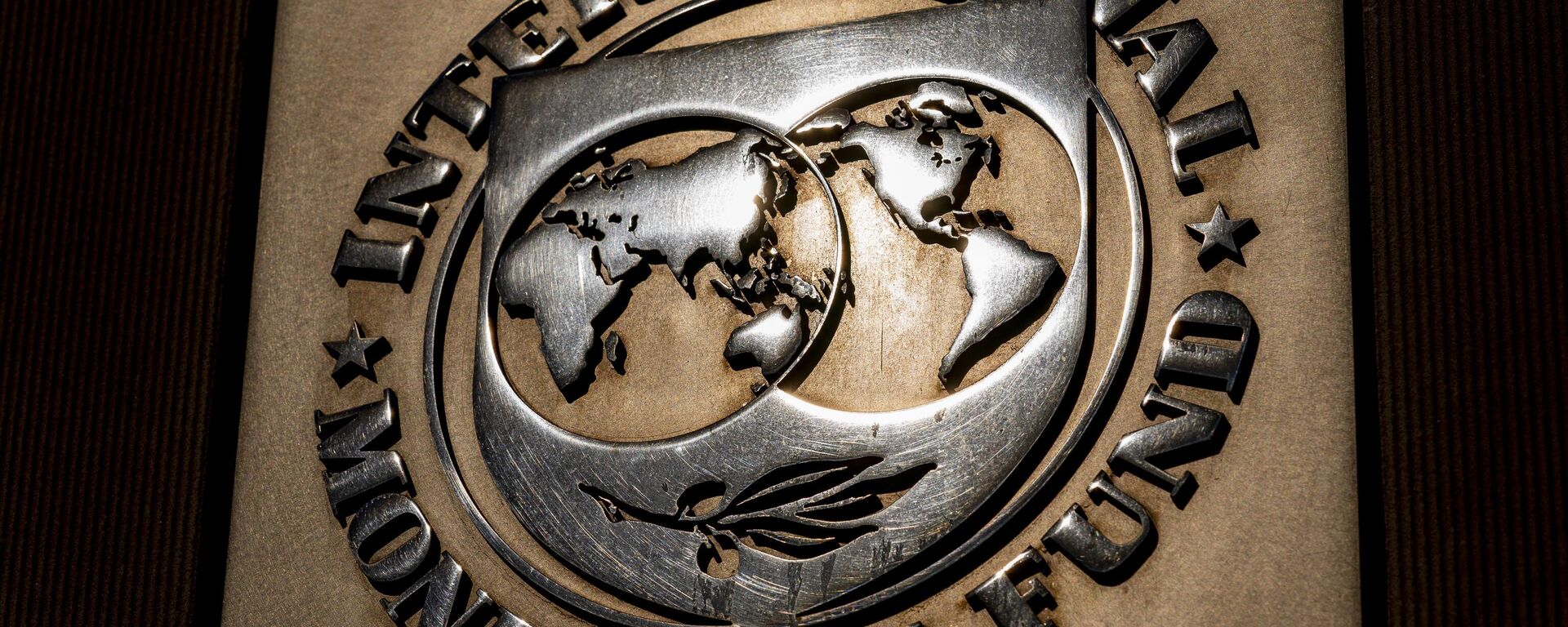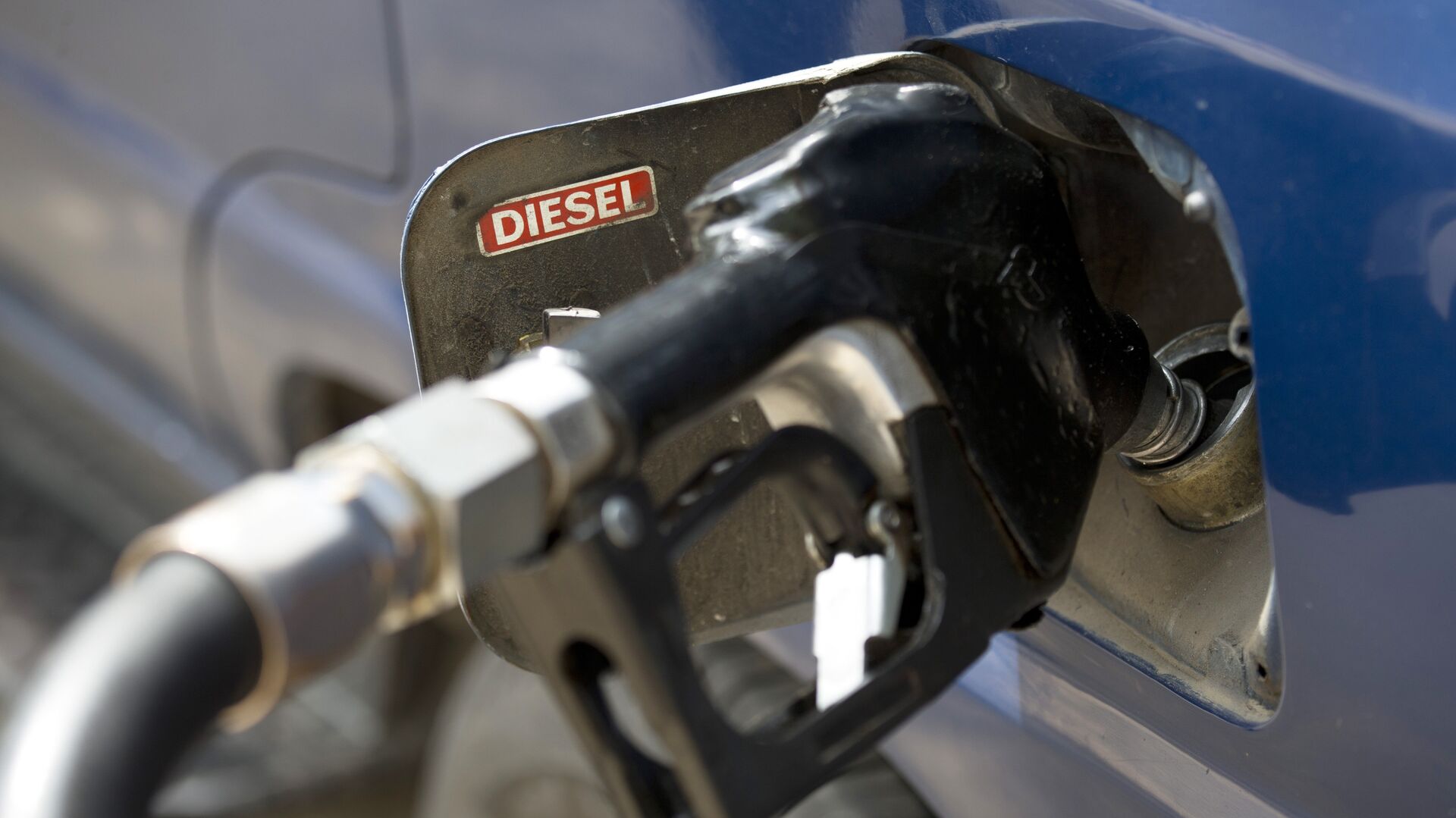https://sputnikglobe.com/20230208/price-cap-on-russian-diesel-to-raise-costs-for-europe-disrupt-logistics-energy-expert-1107077628.html
Price Cap on Russian Diesel to Raise Costs for Europe, Disrupt Logistics: Energy Expert
Price Cap on Russian Diesel to Raise Costs for Europe, Disrupt Logistics: Energy Expert
Sputnik International
The European Union's price cap on Russian diesel and other refined oil products risks putting upward pressure on inflation at home, while stressing the global market and its shipping capacities
2023-02-08T12:00+0000
2023-02-08T12:00+0000
2023-02-08T12:00+0000
world
price cap
diesel
russia
europe
https://cdn1.img.sputnikglobe.com/img/104811/29/1048112929_0:249:4770:2932_1920x0_80_0_0_77e06ed7a71c58cbfd6c4c36cf919585.jpg
The EU joined G7 most industrialized countries and Australia last week in setting a $100 price limit on diesel, jet fuel and gasoline, and capping other crude and petroleum products at $45 per barrel as the West seeks to slash Russia's export revenues in response to the conflict in Ukraine. Ernst, from University of Liege and Institut Polytechnique de Paris, said the cap would likely contribute to the already high cost of living in Europe because rising diesel prices eat into transportation budgets and affect the cost of most consumer goods. The reshuffle of supply chains, which took the EU decades to build, will result in longer shipping routes and potential increases in pump prices. He predicted that the United States would be the biggest winner of the West's standoff with Russia. US refineries have become Europe's largest alternative source of diesel since last February, rising to a record 237,000 barrels per day in January from 34,000 barrels a year ago, according to tanker data shared by S&P Global. Saudi Arabia, the United Arab Emirates, China and India also made gains. Ernst estimated that Russia would still see good profit margins after phasing out discounts and rebates on refined products. He called the potential effect of the newest price caps on Russia "more symbolic than efficient" and likelier to hurt Europeans more than Russians. The caps took effect on Sunday, two months after the allies set a $60 price ceiling on Russian crude. The newest sanctions come at a time of rising diesels prices as Europe struggles to secure imports from alternative sources. S&P Global data shows that the EU was still importing 27% of its diesel from Russia weeks before the price cap was introduced.
https://sputnikglobe.com/20230131/imf-does-not-expect-wests-price-cap-to-significantly-affect-russian-oil-exports-weo-1106842144.html
russia
Sputnik International
feedback@sputniknews.com
+74956456601
MIA „Rossiya Segodnya“
2023
Sputnik International
feedback@sputniknews.com
+74956456601
MIA „Rossiya Segodnya“
News
en_EN
Sputnik International
feedback@sputniknews.com
+74956456601
MIA „Rossiya Segodnya“
Sputnik International
feedback@sputniknews.com
+74956456601
MIA „Rossiya Segodnya“
european union's price cap, russian diesel
european union's price cap, russian diesel
Price Cap on Russian Diesel to Raise Costs for Europe, Disrupt Logistics: Energy Expert
MOSCOW (Sputnik) - The European Union's price cap on Russian diesel and other refined oil products risks putting upward pressure on inflation at home, while stressing the global market and its shipping capacities, Damien Ernst, a professor of geopolitics of energy, told Sputnik.
The EU joined G7 most industrialized countries and Australia last week in setting a $100 price limit on diesel, jet fuel and gasoline, and capping other crude and petroleum products at $45 per barrel as the West seeks to slash Russia's export revenues in response to the conflict in Ukraine.
Ernst, from University of Liege and Institut Polytechnique de Paris, said the cap would likely contribute to the already high cost of living in Europe because rising diesel prices eat into transportation budgets and affect the cost of most consumer goods. The reshuffle of supply chains, which took the EU decades to build, will result in longer shipping routes and potential increases in pump prices.
"One can fear that again the EU shoots itself in the foot, punishing its own citizens already hit by an unprecedented wave of inflation with higher prices for food, transport, heating, electricity. The de-optimisation of logistics will probably mean an increase of 5 eurocents per litre at the pump in Europe very quickly," he said.
He predicted that the United States would be the biggest winner of the West's standoff with Russia. US refineries have become Europe's largest alternative source of diesel since last February, rising to a record 237,000 barrels per day in January from 34,000 barrels a year ago, according to tanker data shared by S&P Global. Saudi Arabia, the United Arab Emirates, China and India also made gains.

31 January 2023, 04:36 GMT
"You can expect India, for example, to increase the sale to Europe of refined products from crude oil bought from Russia. That is a double negative for Europe: they lose the added value of industrial activity in European refineries and still buy Russia products from India," the expert said.
Ernst estimated that Russia would still see good profit margins after phasing out discounts and rebates on refined products. He called the potential effect of the newest price caps on Russia "more symbolic than efficient" and likelier to hurt Europeans more than Russians.
"The IMF announced that the growth of the Russian economy will be higher than the European Union growth in 2024; the IMF took the sanctions into account. That says it all. A gigantic world market reshuffling for nothing much in terms of efficiency of the sanction on Russia," the pundit suggested.
The caps took effect on Sunday, two months after the allies set a $60
price ceiling on Russian crude. The newest sanctions come at a time of rising diesels prices as Europe struggles to secure imports from alternative sources. S&P Global data shows that the EU was still importing 27% of its diesel from Russia weeks before the price cap was introduced.





